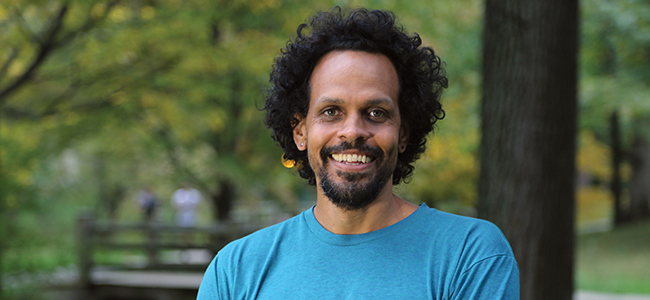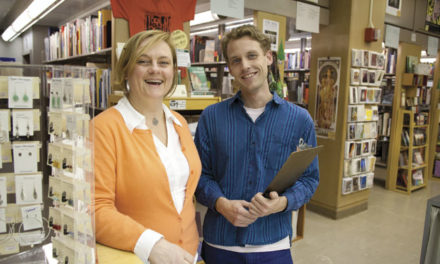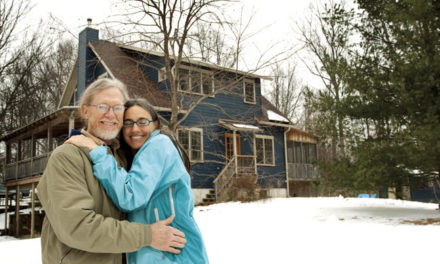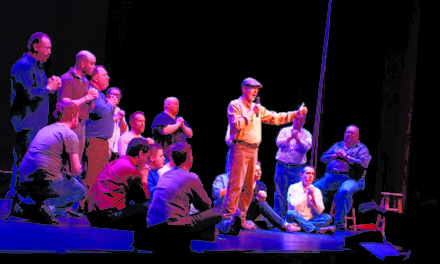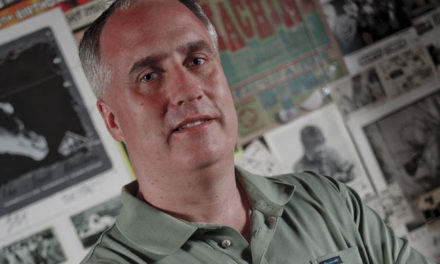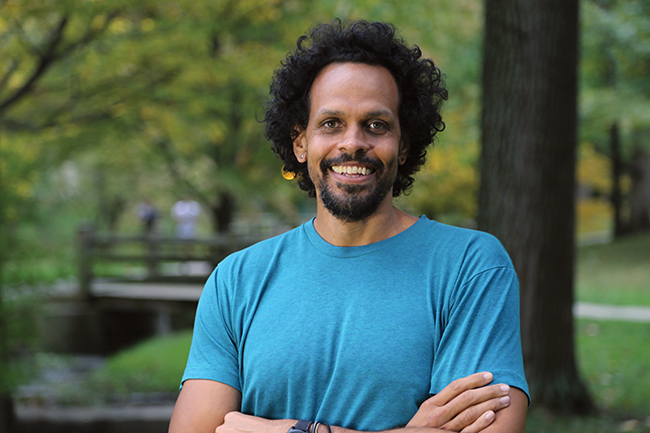
BY JULIE GRAY
Poet and Indiana University creative writing professor Ross Gay learned that he had been nominated for the National Book Award in poetry while in Pittsburgh to attend an event with his mentor and former teacher, Gerald Stern, who himself won the award in 1998.
Although Gay, 41, didn’t win, being one of five finalists for an award whose past recipients include not only Stern but also Wallace Stevens, Robert Lowell, and Allen Ginsberg is an honor in itself. Gay was nominated for his 2015 collection, Catalog of Unabashed Gratitude. The title came to him as he was sitting in the grass after a workout. “I was laughing,” Gay says, “because I knew the title was funny, especially given the ironic or dour way we think of poetry. I’ve given a lot of poetry readings after which I felt like I’d just gotten run over by a truck.”
Though the collection contains images of suffering and death — there are poems about his late father and his murdered IU colleague Don Belton — it also abounds with life and joy. And that’s as it should be, Gay says: “The reason for the gratitude is because our lives are full of pain.”
In the title poem, the poet is visited in a dream by a robin who tells him “in no uncertain terms to bellow forth … the whole rusty brass band of gratitude.” Gay follows orders. The poem is a celebration of the glories he’s shared with friends, lovers, and family, as well as of earthly delights. One stanza begins; “thank you zinnia, and gooseberry, rudbeckia and pawpaw, Ashmead’s kernel, cockscomb and scarlet runner, feverfew and lemonbalm.”
Gay took up gardening when he moved to Bloomington in 2007. He was an early member of the Bloomington Community Orchard, and a fig tree figures prominently in several poems. The tree Gay refers to is in a garden outside Philadelphia that belongs to the father of one of his best friends. “It makes me very happy,” Gay says, “that cuttings from that tree have now proliferated all over southern Indiana,” including in Gay’s own garden and the orchard. Not to push a metaphor too far, but perhaps the beauty of Gay’s own poetry will be scattered even further.


